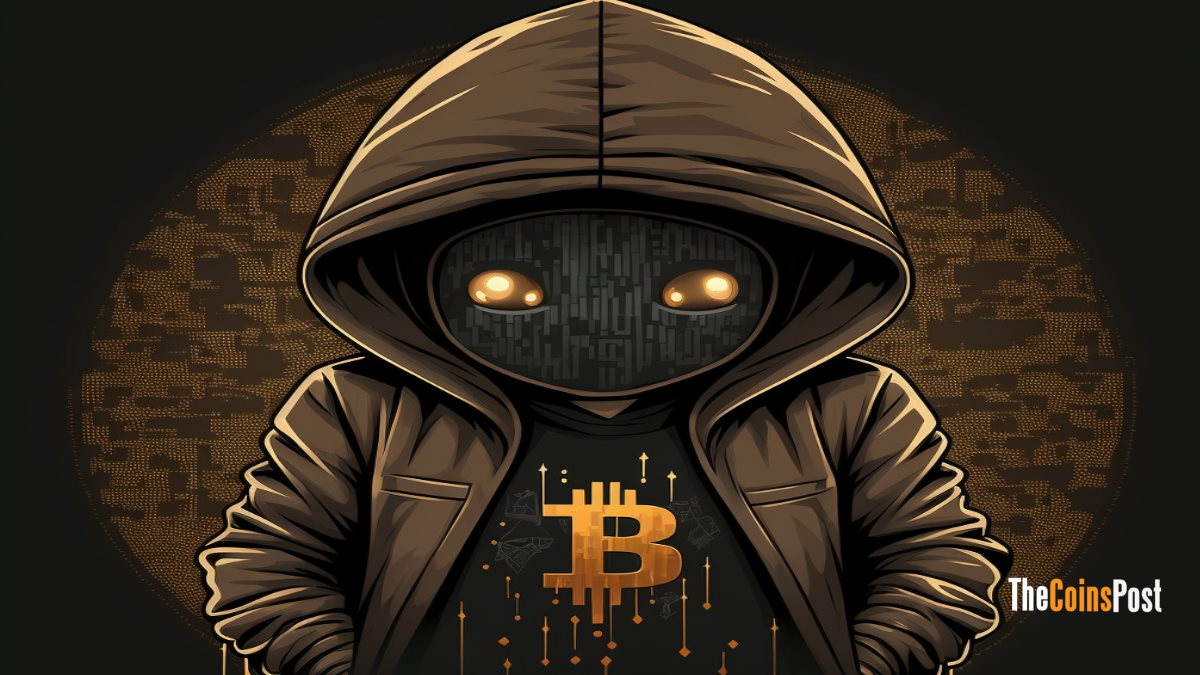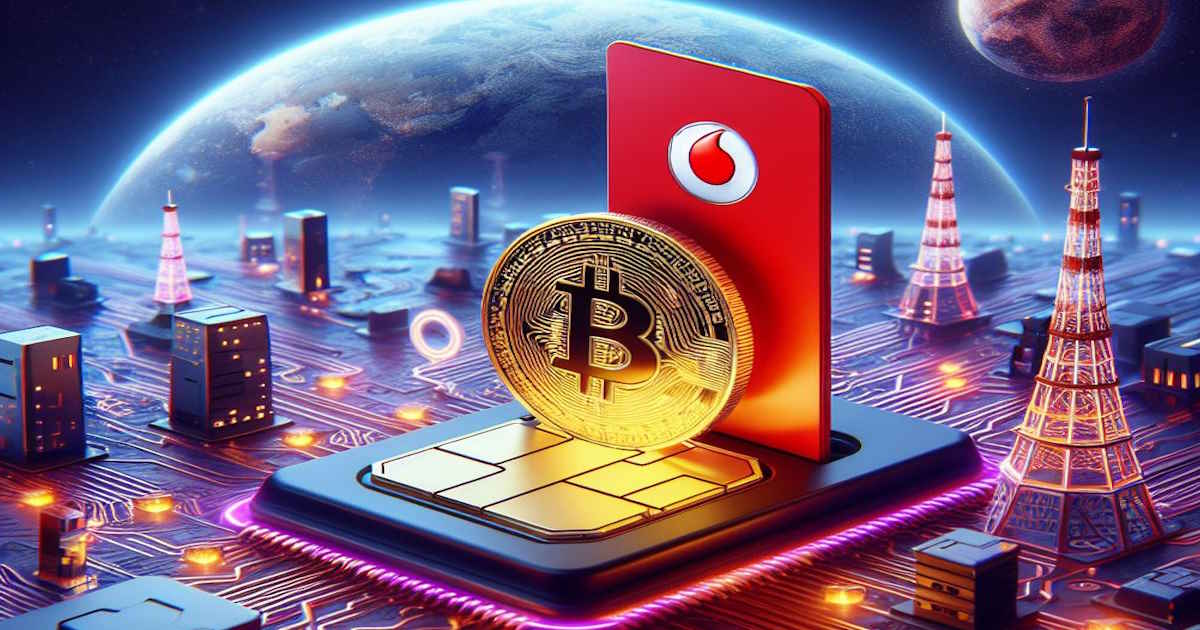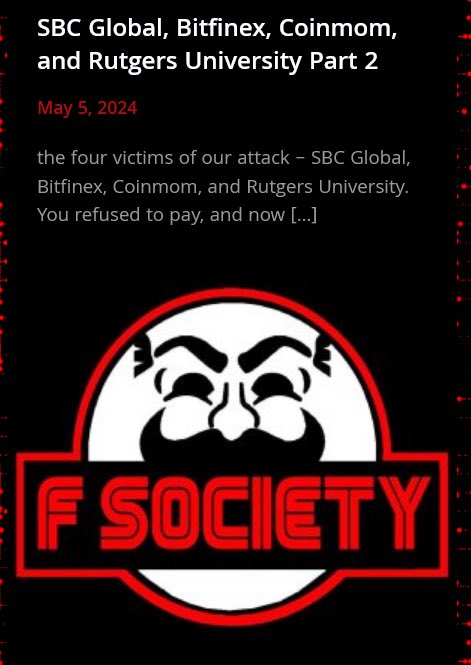Bitcoin
Bitcoin Hacks, Fraud and Scams: How to Protect Yourself?

Bitcoin, the world’s first and most widely recognized cryptocurrency, has revolutionized the way we think about and use money. It has also, unfortunately, opened the door to a new type of crime: Bitcoin hacking, fraud and scams.
If you own bitcoin, or are thinking about buying some, it’s important to be aware of the various scams and frauds that can target you. Here are some tips to help you protect yourself:
Contents
- 1 Use a reputable exchange:
- 1.1 Avoid Telegram scams:
- 1.2 Be aware of exit scams:
- 1.3 Use a hardware wallet:
- 1.4 Don’t share your private keys:
- 1.5 Don’t fall for Bitcoin investment schemes:
- 1.6 Avoid Rug pull scams:
- 1.7 Enable two-factor authentication:
- 1.8 Use strong and unique passwords:
- 1.9 Enable transaction notifications:
- 1.10 Use a reputable antivirus software:
- 1.11 Enable account recovery options:
- 1.12 Use a multi-sig wallet:
- 1.13 And finally, use a virtual private network (VPN):
Don’t fall for phishing attacks:
Scammers will often send fake emails or texts claiming to be from a legitimate bitcoin exchange or wallet service, asking you to click on a link and enter your login details. Don’t fall for it! If you receive an unsolicited message that seems suspicious, do not click on any links or enter your login information. Instead, go directly to the website of the exchange or wallet service in question and log in from there.
Use a reputable exchange:
If you’re buying bitcoin, be sure to use a reputable exchange. Look for an exchange that has a good reputation, a long track record, and a user-friendly interface. Avoid any exchange that seems shady or unprofessional.
Avoid Telegram scams:
Unfortunately, Telegram is full of fake initial coin offering, scam projects, Ponzi schemes, fake subscriptions to paid dump & dump groups ..etc. it is important to be cautious when interacting with unknown individuals or groups on the platform. Do not click on links or enter your personal information unless you are certain that the request is legitimate.
Be aware of exit scams:
Do not store your cryptocurrency in online crypto exchanges. Online Exchanges are not safe for storing cryptocurrencies. If you keep your private keys in a safe place, your coins can’t be stolen when an exchange is compromised. We have covered some exit scams before like: ADAX, Claymore and NovaChain. And always remember, Not Your Keys, Not Your Coins. It’s that simple.
Use a hardware wallet:
A hardware wallet is a special type of device that stores your bitcoin offline, making it much harder for hackers to steal your funds. If you own a significant amount of bitcoin, it’s a good idea to invest in a hardware wallet to keep your funds safe.
Your private keys are like the passwords to your bitcoin and your cryptocurrency wallets. Keep them secret and secure, and never share them with anyone.
Be cautious of “free” bitcoin offers: If something seems too good to be true, it probably is. Be wary of any offer that claims to give you free bitcoin. These types of offers are often scams designed to steal your personal information or trick you into investing in a fake cryptocurrency.
Don’t fall for Bitcoin investment schemes:
These scams involve individuals being duped into investing in fake or fraudulent investment opportunities, resulting in the loss of their money. Always be cautious of “too good to be true” offers.
Avoid Rug pull scams:
Rug pull scams are a type of cryptocurrency scam in which a group creates a fake cryptocurrency and promotes it as a promising investment opportunity. The group will often use social media, Telegram, or other online platforms to promote the coin and get people to invest in it. Once the group has raised a significant amount of money, they will “pull the rug” out from under the investment by disappearing and leaving the investors with worthless coins. This type of scam is called a rug pull because it is similar to the action of pulling a rug out from under someone, causing them to fall. Rug pull scams are particularly insidious because they can be difficult to detect, and people who fall victim to them may lose significant amounts of money. It is important to be cautious when considering investments in cryptocurrencies and to thoroughly research any coin or project before investing.
Enable two-factor authentication:
Two-factor authentication (2FA) is an extra layer of security that requires you to enter a code sent to your phone or email in addition to your password when logging into your account. This helps to prevent unauthorized access to your account even if someone else gets hold of your password.
Use strong and unique passwords:
Make sure to use strong, unique passwords for all of your accounts, and avoid using the same password for multiple accounts. It would be a good idea to use a password manager that can help you generate and store strong, unique passwords for all of your accounts.
Enable transaction notifications:
Some exchanges and wallets offer the option to receive notifications for all transactions. This can help you stay on top of your account activity and be aware of any unauthorized transactions.
Use a reputable antivirus software:
Installing antivirus software can help protect your computer from viruses and other malware that could compromise your bitcoin wallet or steal your personal information.
Enable account recovery options:
Many exchanges and wallets offer account recovery options, such as the ability to reset your password or access your account through a secondary email address. Enabling these options can help you regain access to your account in the event that you lose your login credentials.
Use a multi-sig wallet:
A multi-sig wallet requires multiple signatures, or approvals, before a transaction can be made. This can help protect your bitcoin from being stolen in the event that one of your signatures is compromised.
And finally, use a virtual private network (VPN):
A VPN can help protect your online activity and keep your connection secure when using the internet. This can be especially important when accessing your bitcoin wallet or making transactions.
By following these tips, you can protect yourself from bitcoin fraud and scams. Remember to always be vigilant, and never share your personal information or login details with anyone.
Bitcoin
French Police Arrest Crypto Kidnappers After Finger Cutting

Paris, France – French police arrested several suspects this week tied to a disturbing May kidnapping. The victim was the elderly father of a wealthy cryptocurrency entrepreneur. A source close to the investigation confirmed the arrests on Wednesday.
This incident is the latest in a concerning series of crimes. Over recent months, criminals have repeatedly targeted the families of France’s crypto elite. The goal appears consistent: extortion through abduction.
The May Kidnapping: Violence in Daylight
The events prompting these arrests unfolded on May 1st. In Paris’s busy 14th arrondissement, four masked men struck in broad daylight. They seized the elderly father of a prominent crypto businessman. Witnesses saw the men force the victim into a delivery van.
The kidnappers acted brutally. They cut off one of the victim’s fingers. They demanded a ransom of several million euros (equivalent to millions of dollars) for his release.
French police responded decisively. A tactical unit located where the man was being held. Days after the kidnapping, they stormed a house in a Paris suburb. They successfully freed the victim.
Recent Arrests and a Pattern of Crime
The arrests made this Tuesday target individuals suspected of direct involvement in this violent abduction and extortion plot. The source did not specify the exact number of people arrested or their locations. Under French law, suspects can be held for questioning for up to 96 hours before charges must be filed.
This case isn’t isolated. Since January, French authorities have tracked a worrying trend. Wealthy individuals involved in cryptocurrencies, and crucially, their families, have become prime targets for kidnapping gangs.
The Balland Case: A Chilling Precedent
The spate began dramatically in January. Kidnappers abducted David Balland, co-founder of the billion-dollar crypto security firm Ledger, and his partner. The perpetrators used horrific tactics similar to the May case. They cut off Balland’s finger and demanded a large ransom.
Police found Balland the next day. His girlfriend was discovered tied up in the trunk of a car outside Paris. This case highlighted the serious threat facing the crypto community.
Significant progress was made last week. Moroccan authorities, acting on French requests, arrested Badiss Mohamed Amide Bajjou in Tangier. The 24-year-old is suspected of being the mastermind behind the Balland kidnapping and other similar attacks. At least nine other suspects are under investigation in that specific case.
“Stop the Mexicanisation”: Fear and Frustration Mount
The repeated attacks have created deep anxiety. Wealth generated through the volatile but lucrative cryptocurrency market has painted targets on the backs of entrepreneurs and their loved ones. The violence and brazen tactics recall organized crime operations seen elsewhere.
One prominent crypto entrepreneur voiced this fear starkly. He urged French authorities to “stop the Mexicanisation of France.” This phrase directly references the kidnappings often perpetrated by violent cartels in Mexico.
Government Steps: Meetings and Security Pledges
The growing crisis forced a government response. Last month, Interior Minister Bruno Retailleau held an emergency meeting. He met with leaders from the cryptocurrency sector. The Ministry of the Interior announced plans following this meeting. They pledged to bolster security measures specifically for individuals deemed high-risk within the crypto industry.
The Security Challenge for Crypto Wealth
This wave of kidnappings underscores a harsh reality. Sudden, significant wealth linked to cryptocurrencies attracts dangerous criminal attention. Unlike traditional wealth often held in regulated banks or visible assets, crypto fortunes can be harder to trace. This might make victims seem like easier targets for extortion, criminals mistakenly believing crypto ransoms are harder to track or recover.
However, the brutal methods – severing fingers to pressure families – demonstrate extreme violence. It shows these gangs operate with little regard for human life. The targeting of elderly parents adds another layer of cruelty, exploiting family bonds for financial gain.
The Investigation Continues
While this week’s arrests mark progress in the May case, the broader threat remains. Authorities are actively investigating the connections between these incidents. They are working to dismantle the networks responsible for planning and executing these kidnappings.
Key questions persist:
- Are these separate criminal groups, or part of a larger, coordinated network?
- How are victims being identified and targeted?
- What specific security enhancements will the government implement?
The French crypto community watches nervously. They hope these arrests signal a turning point. They want authorities to break the cycle of violence targeting them and their families. The pressure is on police and government officials to deliver tangible results and restore a sense of safety.
The promise of cryptocurrency innovation now comes with a grim caveat in France: immense wealth can carry immense personal risk. As investigations deepen and security measures evolve, the nation grapples with preventing its crypto boom from being overshadowed by a crime wave targeting its architects.
Bitcoin
Telecom Giant Vodafone Bringing Crypto to the Masses Via SIM Cards

The major telecom company Vodafone has unveiled an ambitious plan to integrate cryptocurrency wallets directly into the SIM cards used by mobile phones on its network. This cutting-edge move aims to make blockchain technology and crypto easily accessible to millions of smartphone users worldwide.
What’s Happening?
Vodafone, one of the largest mobile operators based in the UK, intends to combine crypto wallets with the subscriber identity module (SIM) cards inside phones. SIM cards are little chips that allow mobile devices to connect to a carrier’s network.
By embedding a crypto wallet into these ubiquitous SIM cards, Vodafone wants to introduce blockchain and virtual currency technology to the masses through the smartphones we all use daily.
The Bigger Blockchain Picture
This crypto SIM integration is part of Vodafone’s bigger blockchain strategy. The company has developed its own “PairPoint Digital Asset Broker” platform to enable secure digital identities and transactions across different blockchains.
Vodafone’s blockchain lead David Palmer emphasized in an interview that mobile phones are the main way billions access digital services and commerce. So partnering blockchain with SIM card tech is crucial for widespread adoption.
By 2023, there will be over 8 billion mobile phones in use globally. And estimates suggest crypto wallets on smartphones could reach 5.6 billion by 2030 as digital money goes mainstream.
Financial Restructuring
The crypto wallet announcement comes as Vodafone seeks to restructure its finances and raise billions in new funds through debt offerings and loans over the next couple years.
The company plans to take on $2.9 billion in total debt, including $1.8 billion in direct loans. Some of this financial overhaul relates to issues at Vodafone’s Indian subsidiary Vodafone Idea Ltd.
While navigating these monetary hurdles, Vodafone still sees major opportunities in emerging technologies like blockchain and aims to be an innovator helping drive mainstream crypto adoption through the SIM card strategy.
Bitcoin
No Evidence of Hack, Says Bitfinex CTO Amid Ransomware Gang’s Allegations

In the world of cybersecurity, claims of data breaches can cause significant concern and speculation. Recently, a ransomware group named FSOCIETY claimed to have successfully hacked several organizations, including the cryptocurrency exchange Bitfinex. However, Bitfinex’s Chief Technology Officer (CTO), Paolo Ardoino, has dismissed these rumors, stating that a thorough analysis of their systems revealed no evidence of a breach.
According to Ardoino, who is also the CEO of Tether, less than 25% of the email addresses allegedly stolen from Bitfinex’s servers match legitimate users. This casts doubt on the validity of FSOCIETY’s claims regarding the supposed hack.
The ransomware group, styled after the fictional hacking group from the TV show “Mr. Robot,” claimed to have breached several victims, including Rutgers University, consulting firm SBC Global, and a cryptocurrency exchange they referred to as “Coinmoma,” which is likely a misspelling of Coinmama.
Ardoino expressed skepticism about the group’s claims, stating that if they had indeed hacked Bitfinex, they would have demanded a ransom through the exchange’s bug bounty program, customer support channels, emails, or social media accounts. However, Bitfinex received no such requests from FSOCIETY.
Furthermore, Ardoino shared a message from a security researcher suggesting that the real motivation behind the alleged hacks might be to promote FSOCIETY’s ransomware tools, which they reportedly sell access to in exchange for a subscription fee and a commission on stolen profits. Ardoino questioned the group’s need to sell their tools for $299 if they had truly hacked a major exchange like Bitfinex.
It’s worth noting that Bitfinex has previously fallen victim to a significant hack in 2016, resulting in the theft of a substantial amount of Bitcoin. Two individuals, including crypto rapper ‘Razzlekhan,’ pleaded guilty to money laundering charges in connection with that incident.

While the claims made by FSOCIETY have yet to be verified by the alleged victims, Bitfinex’s CTO remains firm in his stance that no breach has occurred. As cybersecurity threats continue to evolve, it is crucial for organizations to remain vigilant and take proactive measures to protect their systems and users’ data.
-

 Altcoins5 years ago
Altcoins5 years agoProject Review: Pi Network, a New Scam Project in Town
-

 Bitcoin5 years ago
Bitcoin5 years agoBitcoin Worth $1.2M Seized From Arrested Indian Hacker
-

 Altcoins6 years ago
Altcoins6 years agoReview: Play Arcade Games Inside ARK Wallet And Win Some Free Cryptocurrency
-

 Blockchain6 years ago
Blockchain6 years agoA Full Review: Utopia A New Decentralized P2P Blockchain
-

 Bitcoin6 years ago
Bitcoin6 years agoAnother Exit Scam: NovaChain Shuts Down
-

 Exchanges6 years ago
Exchanges6 years agoCrex24 Will Require KYC Verification
-

 Bitcoin6 years ago
Bitcoin6 years agoJohn McAfee Has Gone Missing
-

 Blockchain6 years ago
Blockchain6 years agoProject Review: Dmail Decentralized Blockchain Email



















